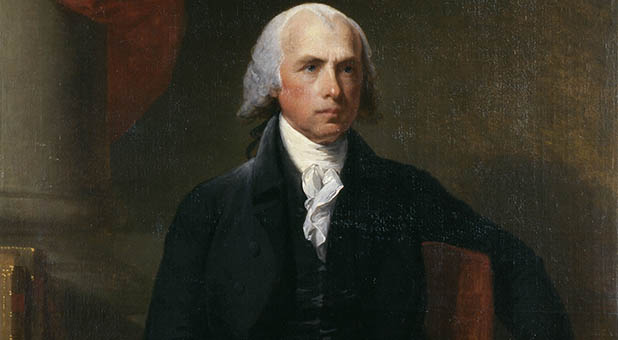On this day 225 years ago, the states ratified one of the most significant documents in our government. We are reminded today that religious freedom is no new issue in American history.
The Bill of Rights, comprised of the first 10 amendments to the United States Constitution, enumerates sacred, fundamental rights that Congress may not violate. Among these rights are our first freedoms of religion, speech, press, assembly, and petition that define who we are as a nation.
The Bill of Rights was created in a time of great division in our country. Fundamental differences raged among the states and between people of different worldviews, religious beliefs, and ideas of what America should be.
Many were unwilling to tolerate people whose fundamental religious beliefs differed from the majority in each particular region. The concepts of pluralism and religious freedom were only just beginning to take shape.
Our ideal of religious freedom can trace its roots in part to the leadership and initiative of James Madison. Commonly referred to as the “father of the Constitution,” Madison consistently advocated laws restraining the government from encroaching on the people’s rights, especially religious rights.
From a young age, Madison saw the consequences of governments silencing speech and censoring public religious expression. In 1774, the Virginia government imprisoned several Baptist pastors as punishment for their controversial sermons, and Madison reflected that the situation “vexes me the most of any thing whatever.”
He expressed his concern about pastors’ lack of freedom and the hostility they were facing in a letter to William Bradford in January 1774:
There are at this [time] in the adjacent County not less than 5 or 6 well meaning men in close Gaol for publishing their religious Sentiments … I have neither patience to hear talk or think of any thing relative to this matter, for I have squabbled and scolded abused and ridiculed so long about it, [to so lit]tle purpose that I am without common patience. So I [leave you] to pity me and pray for Liberty of Conscience [to revive among us.]
Madison all too well understood the dangers of the tyranny that a religious majority can unleash on minorities of other faiths, such as the Baptist ministers in Virginia. Still, the founders often debated whether a bill of rights was necessary to protect our civil liberties.
One year before the Bill of Rights was drafted, Thomas Jefferson wrote to Madison, arguing that “a bill of rights is what the people are entitled to against every government on earth, general or particular, & what no just government should refuse, or rest on inferences.”
Madison responded, expressing that his party harbored doubts about its effectiveness. He noted that, although his “own opinion has always been in favor of a bill of rights,” state governments often abandoned their own bill of rights.
He wrote, “Repeated violations of these parchment barriers have been committed by overbearing majorities in every State.” For example, “In Virginia I have seen the bill of rights violated in every instance where it has been opposed to a popular current.”
Still, Madison believed that a bill of rights was important because it could acquire “the character of fundamental maxims of free Government,” and would therefore serve to counter the majoritarian impulse to oppress minorities.
Fifteen years after his letter advocating religious freedom for the imprisoned pastors, Madison proposed that the nation’s Bill of Rights include a freedom of conscience clause.
“The civil rights of none,” the clause read, “shall be abridged on account of religious belief or worship, nor shall any national religion be established, nor shall the full and equal rights of conscience be in any manner, or on any pretext infringed.”
After several months, Congress passed the final version of the first 10 amendments on Sept. 25, 1789. Almost two years later, the Bill of Rights was ratified by the states and added to the Constitution on Dec. 15, 1791.
While these amendments initially only applied to the federal government, today they are also binding on the states through the 14th Amendment, making the Bill of Rights the guarantee of the religious liberty that Americans now enjoy.
The founders believed that religious freedom was a God-given right, recognized by our government but not created by it.
Fast forward to 2016, and our nation is still divided. Though the issues have changed, culture wars continue to wage. We must look to history as we discuss the future of religious freedom in a nation so divided.
In order to keep our freedom for another 225 years, we must refuse to coerce those who hold religious views to violate their deeply held beliefs. Americans of all religious beliefs and perspectives must respect religious freedom for all. {eoa}
Abigail Doty is a policy analyst for First Liberty Institute. Stephanie N. Taub is an associate counsel for First Liberty Institute.
This article was originally published at DailySignal.com. Used with permission.
See an error in this article?
To contact us or to submit an article






















